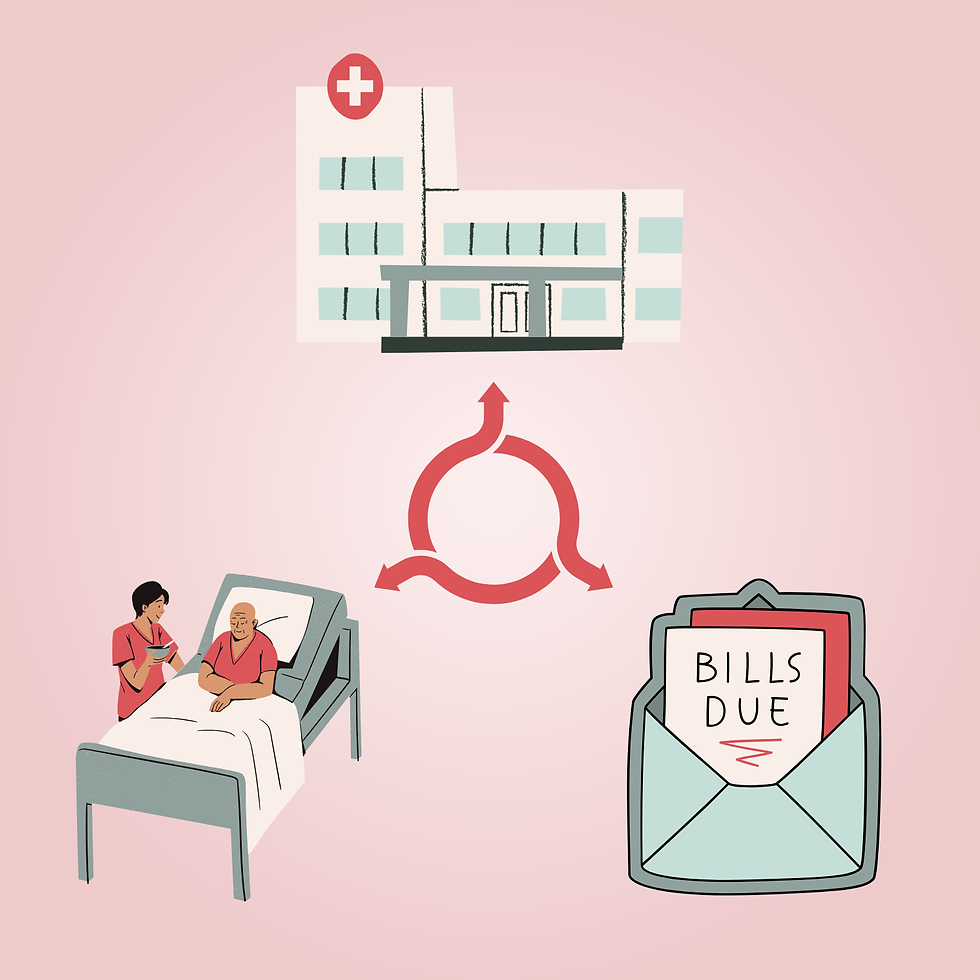A Changing Scene for the CDC: Regulation that Shapes Public Health Transparency
- Suraj Chatoth
- Mar 29, 2025
- 3 min read

Changing policies on regulation and communication for independent healthcare organizations may have serious implications for the public health sector, as the Center for Disease Control and Prevention (CDC), who are at the forefront of a rapidly changing healthcare industry. Communication with the public and data availability are recent developments that have brought public health concerns and controversies in the public eye.
On February 18, 2025, the White House issued The Ensuring Accountability for All Agencies Executive Order, which mandates that independent regulatory agencies must submit major regulatory actions for federal approval before public release [1]. The communication and dissemination of phases of public health policy are crucial to informing the public of growing health concerns and successful community health efforts [2]. For example, during a healthcare crisis such as an outbreak of a disease, the CDC works to develop mitigation efforts and prevention strategies in order to minimize transmission [3]. With the new executive order, the process of relaying information to the public regarding these efforts is severely delayed because the CDC must get federal approval before communicating with the public about infection control strategies. without the crucial information about how to prevent transmission during an outbreak of other public health concerns, the public is unable to protect themselves in advance. This can lead to a more severe outbreak than if the public had earlier access to information about how to prevent transmission, which places the well-being and lives of the public in jeopardy.
The work of the CDC is also being impacted by the organized effort to purge the Department of Health and Human Services of datasets and webpages with specific terms. Approximately 8,000 CDC datasets and webpages with terms such as “gender ideology”, “reproductive rights”, and “diversity, equity, and inclusion” have been taken down. Other data sets with information about vaccines, veterans’ health, and adolescent health have also been removed]. Several public health officials believe that this effort to remove data from the CDC harms public health by “eliminating access to crucial health information used by clinicians and patients” [4]. This closure of CDC information presents an issue of health equity because these data sets support our understanding of population health. For example, webpages for the CDC’s Division of Adolescent and School Health are no longer available [5]. This includes the Youth Risk Behavior Surveillance System, which is used to measure physical activity, tobacco/drug use, and other behaviors of adolescents. Without such data, it is difficult to understand adolescent health and design prevention measures to support the health of the population.
We have historically relied on evidence-based decision-making in order to support the health of our nation, and efforts to prioritize transparency in data and communication from the CDC must be the focus of future policy interventions. Amidst a changing public health sector, the CDC remains foundational to the ideals of its mission: to protect America from health, safety, and security threats.
Reviewed by Sanjana Anand
References
[1] “Ensuring Accountability for All Agencies.” The White House, The United States Government, 19 Feb. 2025, www.whitehouse.gov/presidential-actions/2025/02/ensuring-accountability-for-all-agencies/.
[2] “Phase 6: Communication and Dissemination.” Centers for Disease Control and Prevention, Centers for Disease Control and Prevention, www.cdc.gov/disability-and-health-partners/php/healthy-communities/phase-6-communication-and-dissemination.html. Accessed 21 Mar. 2025.
[3] “Fundamental Elements Needed to Prevent Transmission of Infectious Agents in Healthcare Settings.” Centers for Disease Control and Prevention, Centers for Disease Control and Prevention, www.cdc.gov/infection-control/hcp/isolation-precautions/prevention.html. Accessed 21 Mar. 2025.
[4] Feldscher, Karen. “As Health Data Disappear from Government Websites, Experts Push Back.” Harvard T.H. Chan School of Public Health, 5 Feb. 2025, hsph.harvard.edu/news/as-health-data-disappear-from-government-websites-experts-push-back/.
[5] Stone, Will, and Selena Simmons-Duffin. “Trump Administration Purges Websites across Federal Health Agencies.” NPR, NPR, 31 Jan. 2025, www.npr.org/sections/shots-health-news/2025/01/31/nx-s1-5282274/trump-administration-purges-health-websites.



Comments